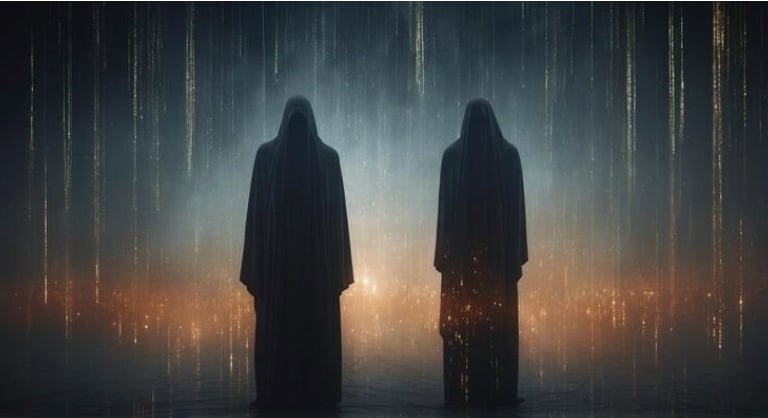Who are the two witnesses of Revelation?


James Heart asks: Hi there! I am a history teacher, so your view of Revelation makes perfect sense. I'm very familiar with the destruction of Jerusalem and the Temple. However, can you please explain who the two witnesses of Revelation are? In my church, Moses and Elijah seem to be the proponents, but they are pre-tribulationalists. Thanks.
Hi James, thanks for reaching out. The problem here is that the people who claim the witnesses are Moses and Elijah, base the identity of the witnesses solely on one of the descriptions provided in Revelation 11, while ignoring the rest of the descriptions given.
In order to rightly identify the two witnesses, not only do we need to look at the entirety of the description, but also understand the allusions pulled directly from the Old Testament for proper interpretation.
First, it's important to understand that the Old Testament legal system mandated at least two witnesses to convict someone of a crime (Deuteronomy 19:15). In Revelation 11, these two witnesses accuse Israel of apostasy.
As to their description, the two witnesses are metaphorically identified as Moses and Elijah in Revelation 11:6. Like Moses in Exodus 7:20, the witnesses have the power to turn water into blood. Like Elijah in 1 Kings 17:1 and 2 Kings 1:10, they have the power to call down fire from heaven, and shut up the sky so that it will not rain.
However, this is not the only description given. In Revelation 11:4, they are also identified as Zerubbabel, the governor of Judah who laid the foundation of the second temple, and Joshua, the high priest.
(“The two olive trees” and the "two lampstands" that "stand before the Lord of the earth" Zachariah 4:11-14).
They are also identified as Jesus Christ himself in Revelation 11:11. Like Jesus, they are sacrificial lambs which are sacrificed in Jerusalem and resurrect after three and a half days as Jesus did (1 Corinthians 15:4, Matthew 12:40).
Lastly, the description of these witnesses "clothed in sackcloth" in Revelation 11:3, identifies them with the tradition of Hebrew prophets from Elijah to John the Baptist, who wore sackcloth in mourning over Israel's apostasy (2 kings 1:8, Isaiah 20:2, Matthew 3:4).
Therefore, these two witnesses are not two literal people. Instead, they are literary characters in John's vision, and represent the entire line of Hebrew prophets and Jesus himself. These two witnesses, testified, warned, and passed God's judgment against Jerusalem and its temple in 70 AD.
Hope this helps clear things up.
Comments:
James Heart: Ok, thanks. This makes good sense when reading the verses from Revelation along with the Old Testament verses you provided. God bless you guys.
BRC Hosts Joey and Chris: Thanks for the question and glad we could help. God bless you James.
Jenny King: So is there any possibilities of John speaking of literal characters?
BRC Hosts Joey and Chris: Hi Jenny. When reading Revelation, the same rules of grammar and interpretation that you follow in all books, must also be applied to Revelation. If not, the book of Revelation can be interpreted as anyone wishes. If we are to literalize these two characters of John's vision, then we need to ignore the allusions that were pulled directly from the Old Testament, and would be left with two fairytale characters that have dragon lungs and a blowtorch for a mouth.
Jenny King: It makes sense. I think people forget that it was a vision, so thing explained could point to literal places and people as well as it can use characters and places, to point out a reality. The book of Revelation is so complicated to me. I grew up in a pre-tribulational view, so learning something new is hard.
BRC Hosts Joey and Chris: Well we hope our previous questions on this topic can help you. We definitely understand you. We grew up in a pre-tribulational view as well. God bless you Jenny.
Jenny King: God bless you guys as well. I've been reading the questions and it's been very helpful. Keep doing what you do. God bless you!
BRC Hosts Joey and Chris: Thanks for your kind words Jenny.
Deuteronomy 19:15
"One witness is not enough to convict anyone accused of any crime or offense they may have committed. A matter must be established by the testimony of two or three witnesses."
Have Questions?
Explore biblical truths through evidence and research.
info@thebibleresearchcenter.com
© 2024. All rights reserved.